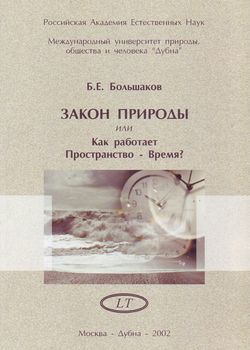Viktor Belaykov-Bodin, PhD in Engineering, Corresponding member of Russian Academy of Natural Science (RANS), Adviser of MICEX Technical Center’s Director
Spartac Nikanorov, Member of International Informatization Academy, Honored member of Russian Academy of Natural Sciences (RANS), Head of research of Analytical Center ”Concept”
Andrey Petrov, PhD in Engineering, Member of Russian Academy of Natural Sciences (RANS), Chief-editor of “Banks and finances” newsletter
Abstract
“Models and methods of social and economic system’s management based on the physically definable sizes” project creation history is presented. The results were supposed to be used for various defense function systems’ efficiency evaluation, in order to define by means of these methods final efficiency of full set of projected and introduced systems’ performance. The project is not finished; the results achieved are handed over to archive. P.G.Kuznetsov’s concept about objective law existence for large-scale systems development expressed in physically definable sizes is being developed at present, in times of world crisis, when such approaches become relevant.
KEYWORDS: large-scale systems, physically definable size, models and management methods, projected systems’ efficiency, objective law of development
Download article: RESEARCH ”EFFICIENCY” AND ITS REALIZATION IN THE DOCUMENTS OF P.G.KYZNETSOV’S ARCHIVES” (FUND 152)


 ПОСЛЕДНИЕ ЭКЗЕМПЛЯРЫ ТИРАЖА
ПОСЛЕДНИЕ ЭКЗЕМПЛЯРЫ ТИРАЖА


